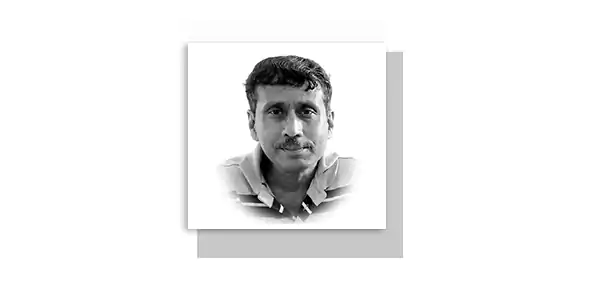Ramazan, the month of fasting
RAMAZAN is the ninth month of the Muslim Islamic calendar and Muslims all over the world fast during the whole of this month from sunrise till sunset. They also offer alms to the poor and recite the Holy Quran during this holy month. According to Muslims, Allah tells them in the Holy Quran, “O ye who believe! Fasting is prescribed for you, as it was prescribed for those before you, so that you may become righteous.” Ramazan is one of the holiest months in the Islamic lunar calendar for Muslims. Unlike the Gregorian calendar which uses the sun as its guide, the Islamic calendar uses the moon. While the months in the Gregorian calendar usually have 30-31 days, months in the lunar calendar have 29-30 days.
This might not seem like much of a difference, but having one or two fewer days in the month means having almost 10 days less than the Gregorian calendar each year. So, if a month falls on a certain day this year, next year that month falls on a day that is almost 10 days earlier than the previous year. These days add up and after a few years the month that fell in spring a few years ago now happens during the winter, and so on. Fasting is a very important spiritual exercise to seek forgiveness of our shortcomings and improve our conduct.
The last Prophet (PBUH) said, “The five (daily) prayers, and from one Juma prayer to the (next) Juma prayer, and from Ramadan to Ramadan are expiations for the (sin) committed in between (their intervals); provided the major sins are not committed.” Fasting is to be purely out of love for God and to thank Him for what He has blessed us with in our daily life.
One way to show this gratitude is to do extraordinary charity during this month. Because of this inconsistency, Muslims don’t really develop a seasonal recognition of Ramadan. Some people might see Santa Claus and think of winter but you can’t do that with Ramadan.
There were many lunar calendars before the Gregorian calendar was discovered, and even though there has been tremendous pressure for Muslims to abandon their calendar, they refused to do so. If you think about it, there is a lot of wisdom to the tradition. If Ramadan always falls in winter in the northern hemisphere, and in summer in the southern hemisphere, then people in the southern hemisphere would be fasting a lot more than their counterparts in the north and Ramadan would be more difficult for them. Because it changes, people in both hemispheres get to experience Ramadan in different seasons, making it all the more fair.
Ramadan is a Muslim holiday, but it is not a holiday in the general sense of the word. In fact, it’s not even a day, it’s an entire month. Considered the holiest month of the year, Muslims believe this is when the Holy Quran was sent down from heaven, guidance unto men. After abstaining from food and beverages from sunrise to sunset, Muslims usually eat a heavy meal after sunset.
There are many reasons to fast, including the Muslim tradition. Other reasons include self-control. If a person is able to abstain from food and drink for that much amount of time, he/she learns to control his/her desires and temptations and thus has greater self-control. Here is what the last Prophet (PBUH) said about fasting, “Fasting is a shield; it will protect you from the hell-fire and prevent you from sins.”
When the month of Ramadan starts, the gates of heaven are opened and the gates of hell are closed and the devils are chained. At the end of Ramadan, Eid-al-Fitr is celebrated with much enthusiasm and fervour by Muslims from all strata of life.
All Muslim countries celebrate Eid as a sign of Muslim unity and values. Starting a day with special prayers and sweet dish called ‘Sheer khurma’ men, women and children wear new clothes, while women along with new clothes also wear bangles and apply mehandi. The children receive blessings and gifts from elders called Eidi. Being happy and thankful to Allah, we should not forget the workers who are not celebrating Eid because of their duties such as policeman, housemaids and gate keepers. We should share our happiness with them too, as Eid is all about sharing happiness and joy.
—The writer is contributing columnist, based in Mumbai, India.
Email: jubeldcruz@yahoo.com










